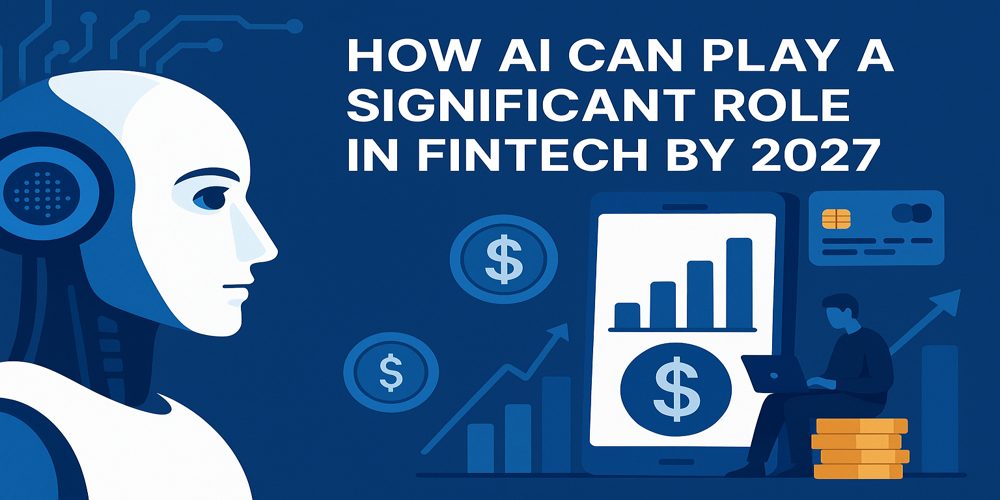Future Of Artificial Intelligence In the Finance Field

Finance has always been a progressive industry, open to adopting new technologies. Artificial Intelligence or AI is one such very adaptable technology that finance companies have adopted. It has the ability to process large amounts of data in very short time periods, which makes it an extremely useful tool in finance because it has the potential to transform the way the sector works.
In this article, we’ll take a look at how exactly AI is transforming the finance industry, and the opportunities and challenges those looking to adopt this technology will face.
Applications Of AI In Finance
AI techniques like machine learning, natural language processing, and deep learning are the most commonly used AI applications in the finance sector. They help automate processes, identify patterns, and make data-driven decisions. For example, AI-driven chatbots help with customer support, and machine learning algorithms can be used for many things, including trading, risk management, fraud detection, etc.
Let’s take a closer look at the areas in which AI is being used in the finance industry:
-
Risk Management: With AI-powered machine learning algorithms, it is much easier to analyze large amounts of data to predict trends in the market and identify potential risks. Thus, the AI algorithms automate the process of risk management to an extent, especially since they can come up with and implement counter-strategies for the risks they identify.
-
Fraud Detection: AI algorithms can process data in real time, meaning they speed up any assessments and verifications necessary about customers and/or property. Thus, AI systems can monitor and uncover suspicious activities as they happen. That, in turn, reduces the risk of fraud.
-
Algorithmic Trading: AI systems can analyze previous trends in the market and use that to predict future market movements accurately. Thus, they have the ability to make credit decisions based on these trends and will purchase or sell automatically. This type of trading is called algorithmic trading, and it is often seen to outperform most traditional trading methods.
-
Personal Finance: There are many AI driven chatbots and robo-advisors that help companies maintain ties with their customers. These AI programs often work as financial advisors and offer people customized advice, which, in turn, may help customers improve their financial well-being.
Benefits Of AI In Finance
The application of AI in finance has brought a huge shift in the industry, and comes with many benefits. Some of these include:
-
Increased Efficiency: AI enables automation in a great many routine tasks that are part of the finance industry. This, in turn, boosts productivity and increases the overall efficiency of the system, since the AI system cuts human error and allows finance professionals, like loan agents and financial advisors, to have more time to spend on more critical tasks that cannot be completed by a machine.
-
Better Decision-Making: AI algorithms help banks and other financial institutions make better decisions by analyzing large amounts of data and predicting future market trends. Such systems can even help banks assess possible borrowers much faster while also saving money. All of this leads to more informed decisions and better performances for companies that employ AI.
-
Improved Customer Experience: As mentioned above, AI-powered chatbots and robo-advisors offer tailored and customized financial advice to your customers. They can be the first line of defense, in that they can easily be programmed to answer the most common queries. This will leave the professionals to step in only when more detailed advice is needed. This automation vastly improves both customer experience and satisfaction.
-
Added Cost Saving: The automation of processes leads to reduced operational costs, which makes companies both profitable and competitive. Moreover, the automation of decision-making, particularly credit decisions, leads to companies cutting their losses rather significantly. Additionally, AI programs do not have human biases, which helps reduce failures and costs that may be incurred due to sensitive or psychological factors.
Challenges Caused By AI In Finance
As great as the benefits of AI are in finance, there are just as many challenges that come with employing such technology. The following are a few of the most common ones:
-
Data Privacy and Security: With AI, a lot of sensitive data needs to be included and processed for effective automation. This leads to many questions about data privacy and security. Financial institutions will need to invest heavily in cybersecurity and ensure that they follow data protection regulations.
-
Ethical Challenges: With the growing use of AI in financial decision-making, many ethical considerations come into play. The AI technology itself must be built and deployed ethically to ensure fairness and transparency.
-
Skills Gap: With the growing dependence on AI, there is a growing skill gap as well, with a shortage of skilled professionals that can develop, implement and manage AI solutions. Thus, it is imperative that financial institutions invest in upskilling their employees to meet the challenges of an AI-driven future.
-
Regulation Challenges: In the past, AI technologies have been developed and implemented too quickly for there to be a stable regulatory framework for them. This has caused a lot of uncertainty in the finance industry, and companies must keep abreast with the continuous updates and interact with policymakers to correct it.
The Future Of AI In Finance
AI is the future for the finance industry, especially with millennials and Gen Z rapidly becoming the largest consumer base. These two generations seem to prefer digital banking over traditional banking, and that makes AI in finance invaluable. Moreover, the coronavirus has amplified this preference rapidly, and even spread it further among older generations.
To really capitalize on the opportunities AI offers in the finance industry, companies will need to prioritize data management and analysis and embrace a data-driven culture. Additionally, investing in talent development to bridge the skills gap would be useful. Another option is to partner with reputable AI vendors, which would enable companies to leverage the vendors’ expertise and technology.
Furthermore, developing ethical AI frameworks that consider and address issues like bias, fairness, transparency and accountability builds trust with customers and reduces risk. It is also a good idea to keep track of regulatory changes related to AI in finance, and engage with policymakers to shape the regulatory landscape.
Moreover, regularly monitoring and evaluating AI technology helps identify areas that may need improvement and optimizes the AI systems. Lastly, it is important to stay ahead of the curve by fostering innovation through encouraging experimentation, learning from mistakes, and adapting to new technologies and market conditions.
To conclude, AI has already become quite important in the finance industry, and it is not going anywhere any time soon. There are both benefits and challenges that come with adopting AI, but it is the future.
Financial institutions need to encourage innovation and foster a data-driven culture to stay ahead of the curve with AI. Andromeda Loans is one such company that integrates market experience with innovative digital technology to help customers find the best financial products suited to their needs. visit Andromeda Loans to know more!








